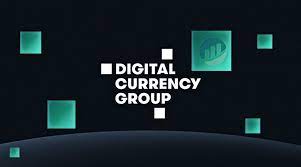Who is the future of the coin blockchain and the coinless blockchain?
Blockchain is the new favorite of the most ardent technology at the moment, and it has various expectations and prospects for its sustainable and healthy development.
At present, the two hottest views are inextricably linked to the "coin".
One tends to issue coins, which is called a coin-rich blockchain; one is against the issue of currency, and forces the development of a currency-free blockchain.
From the nature of the blockchain, the coin block chain is biased towards the “original ecology”. Why do you say this? Because the initial heart of the blockchain blockchain is itself a decentralized, public free and fair participation in governance network.
- Hangzhou Party Committee Secretary likes the blockchain: the number of our head enterprises is the third in the country
- Blockchain ushers in a policy inflection point, core technology and applications will become the main track in the future
- Zimbabwe exchange Golix is closed, CEO loses bitcoin wallet password
01. The natural attributes of the coin blockchain
Many people regard "decentralization" as the soul of the blockchain. "Decentralization", determined to establish a free, undisturbed rational world.
However, in order to achieve a realm similar to the "ideal country", it is necessary to set up an incentive model so that everyone can participate and everyone can "testify", thus attracting participants to actively maintain the fair operation of the books.
This method is called "Token" and can also be regarded as the currency that everyone says.
“Token” generates value flows, thereby maintaining the development of the entire value network. Moreover, the financing attribute of “Token” has great significance for the innovation of the Internet era.
For example, in the case of bitcoin, the value of this value is unusual.
Jack Dorsey once commented on Bitcoin like this:
“Bitcoin is very pure and focuses on the public interest, unlike any other 'currency'. Bitcoin is deflated, designed to encourage savings rather than spending, a model for the world. And people's perceptions of consumption are very positive. Because Bitcoin is a scarce resource, its value will always increase, which means that people need to think more about how to use Bitcoin correctly."
There is no doubt that "Token" is something with a more investment meaning. It brings not only the acquisition of wealth, but also an ecologically stable operation.

If the token is discarded , the system lacks token incentives, and the coinless blockchain cannot attract massive nodes to enter, so there is no huge computational support to provide proof of workload, and there are not enough nodes to store the books in a distributed manner. .
Even if it is similar to a "natural" existence, the coin blockchain will not be approved by most national levels.
After all, the construction of the governance system through the currency, accompanied by strong financial attributes, so the regulatory layer is more cautious, after all, involves the property security of the people.
02, the currency-free blockchain is not a harm
Compared with the danger of the coin blockchain, the future of the coin-free blockchain can be seen as a bright future.
Since October 24, after the central government announced the climax of the blockchain, the currency-free blockchain has always been the top priority of development.
Huang Lianjin, an expert member of the China Electronics Society blockchain, once said that the currency-free blockchain can optimize the centralized database and enhance the speed and performance of data operations.

Cai Yufeng, member of the China Communications Industry Association Blockchain Committee, also believes that the currency-free blockchain is a big direction for the future.
The centralized system still has advantages, and the process of change is very difficult. So in the financial, food, pharmaceutical traceability and government public sector, the currency-free blockchain may advance faster.
From the official point of view, the currency-free blockchain will focus on the application of arbitration institutions, financial institutions, third-party depository institutions, and enterprises.
The coin-free blockchain refers to the alliance chain. A coalition chain is a blockchain that requires permission. Participants are limited to members of the alliance. The size of the alliance can be as large as between countries, or between different institutions. The chain rights are jointly owned by the members of the alliance.
Under this circumstance, an arbitration institution, a financial institution, a third-party depository institution, and an enterprise jointly form a chain of alliances. The records are kept on the chain and cannot be tampered with. When arbitration is required, the evidence can be obtained on the chain, saving a large amount. The cost .
Finally, the blockchain application is put into a limited and closed business scenario by means of alliance chain and the like, and the incentive mechanism is limitedly distributed.
In this respect, the non-coin blockchain dominated by large enterprises and the government, because there is not enough interest to drive , in many cases, the financial situation of the institution will also affect the participation of the coin-free blockchain, even if it is a strong administration. The power is promoted, and the process does not have the rapid participation of spontaneous participation in the case of “Token” incentives.
On the other hand, the falsification of the source data of the coin-free block will also greatly reduce the trust established by the blockchain.
Xu Zhong and Zou Chuanwei, authors of the work papers of the People's Bank of China, pointed out precisely that the main problem facing the coin-free blockchain is how to ensure the true accuracy of the information outside the blockchain at the source and in the blockchain.
Perhaps many people may have thought about how to avoid fraud. Taking people as the unit and acting as a supervisory role, taking legal currency rewards is a common way. But in fact, what we are seeing is that people who dare not take French currency rewards when they think of supervision are just like reporting food safety and fear of retaliation.
03, the expectation in the "parental style"
The twin brothers with the coin blockchain and the coinless blockchain, in the "parental" vision, often have the suspicion of being short-lived.
In the blockchain society, the coin-chain block and the coin-free blockchain can all open up their own world, and even become the double beads.
There are great value support behind the coin blockchain and the coinless blockchain.
The coin-rich blockchain focuses on decentralization, integrates with the Internet in terms of non-tampering and indelible, and innovates in addition to the new “civilization”; the lower-cost, more efficient coin-free blockchain can be applied to Large-scale projects such as public services promote the accelerated development of society as a whole. ( first published in the public number MOCex)
We will continue to update Blocking; if you have any questions or suggestions, please contact us!
Was this article helpful?
93 out of 132 found this helpful
Related articles
- Time stamp capital Zhang: Does the blockchain have a future?
- Looking forward to "application. Unbounded" – 2019 Wuzhen blockchain conference forward-looking
- Market Analysis: The long-term offensive is gradually strengthening, and BTC is waiting for a key outbreak opportunity.
- Bitcoin 11 years: "hard core" 100 things
- Commercial Bank Layout Blockchain: Empowering Financial Scenes to Solve Two "Pain Points"
- The blockchain concept shares are divided, and the new landing company becomes a new favorite.
- The agenda is big exposure! World Blockchain Conference · Wuzhen Shangtai Jiabinda 130




